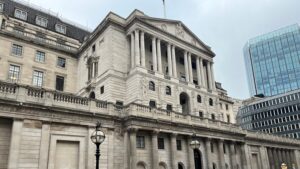Nick Train has highlighted Rathbones’ share price performance in Q2 relative to his other wealth management plays as “noteworthy” and further evidence of “big growth and consolidation opportunities” in the industry.
Writing in the June factsheet for his Finsbury Growth & Income trust, Train noted performance across his wealth management holdings in Q2 was a mixed bag compared to other themes in the portfolio like “digital winners” and “luxury brands”.
Hargreaves Lansdown and Schroders, which are both in the trust’s top 10, underperformed, with the former up 3% and the latter just 0.4%.
But his third holding, Rathbones, bucked this trend, with shares up nearly 6% in the three months to the end of June. During the period the wealth manager announced it would be acquiring Saunderson House for £150m.
Train said the difference in share price performance is “noteworthy” because “it is increasingly evident that there are big growth and consolidation opportunities in the UK wealth management industry”.
“Perhaps the reason Rathbones gave a better share price return over the quarter is because it was able to execute on a deal itself,” he said.
Train ‘interested’ by Vanguard forecasts on financial advice boom
Train said he was “interested” in comments made by Jon Cleborne, head of Vanguard’s US advice arm, to the Financial Times that financial advice is “in an early innings” and demand will “explode” over the next decade as baby boomers retire and millennials face challenges saving for the long-term.
“If this is true for the US, it seems equally so for the UK,” Train mused, noting that JP Morgan’s acquisition of Nutmeg “confirms that at least one global bank sees an opportunity to grow in the UK wealth sector”.
He cited Schroders Personal Wealth, the joint venture between Schroders and Lloyds, as yet another example of companies capitalising on this trend.
“The confirmation that Schroders considered a merger with M&G is indicative of the consolidation options being considered by boards across the industry,” he added.
See also: Nick Train singles out Schroders as he targets burgeoning private wealth space
Saunderson deal ‘makes strategic sense’ for Rathbones
Rathbones’ acquisition of Saunderson, which is expected to complete in the third quarter, will see it become the UK’s third largest wealth manager with £61bn in funds under management.
The deal will more than triple the number of its financial planners, add more than 2,000 clients with an average portfolio of £2.2m and boost its pro forma FUMA to £8.3bn.
As Rathbones largest shareholder, Train’s boutique Lindsell Train raised £2.2m to fund the deal.
Train said: “We welcome the combination, both because it makes strategic sense for Rathbones, but also because it is a reminder that when transactions in this sector happen they tend to do so at higher valuations than pertain for comparable quoted companies. Rathbones itself is valued at less than 2% of its AUM, as is Schroders.”
See also: How does Rathbones’ acquisition of Saunderson House stack up?
FGT’s ‘digital winners’ and ‘luxury brands’ enjoy Q2 rebound
Elsewhere Train said that after a tough first quarter performance, Finsbury Growth & Income had seen many of its quality growth holdings rebound in Q2.
His “digital winners” Sage, Experian and Daily Mail owner DMGT each saw their shares gain 12% in the quarter, while London Stock Exchange and Relx also outperformed the market, jumping 15% and 7% respectively.
The trust’s holdings in “luxury and premium consumer brands” made similarly big strides, with tonic maker Fevertree posting the biggest gains of 21%, followed by Diageo (16%), Heineken (13%), Remy Cointreau (11%) and Burberry (9%).
Cadbury owner Mondelez rose 7% over the quarter, hitting an all-time share price high in the process.
In June net asset value (NAV) rose 1.3%, while the share price fell 1.4%, on a total return basis. By contrast the FTSE All Share was up 0.2%.







